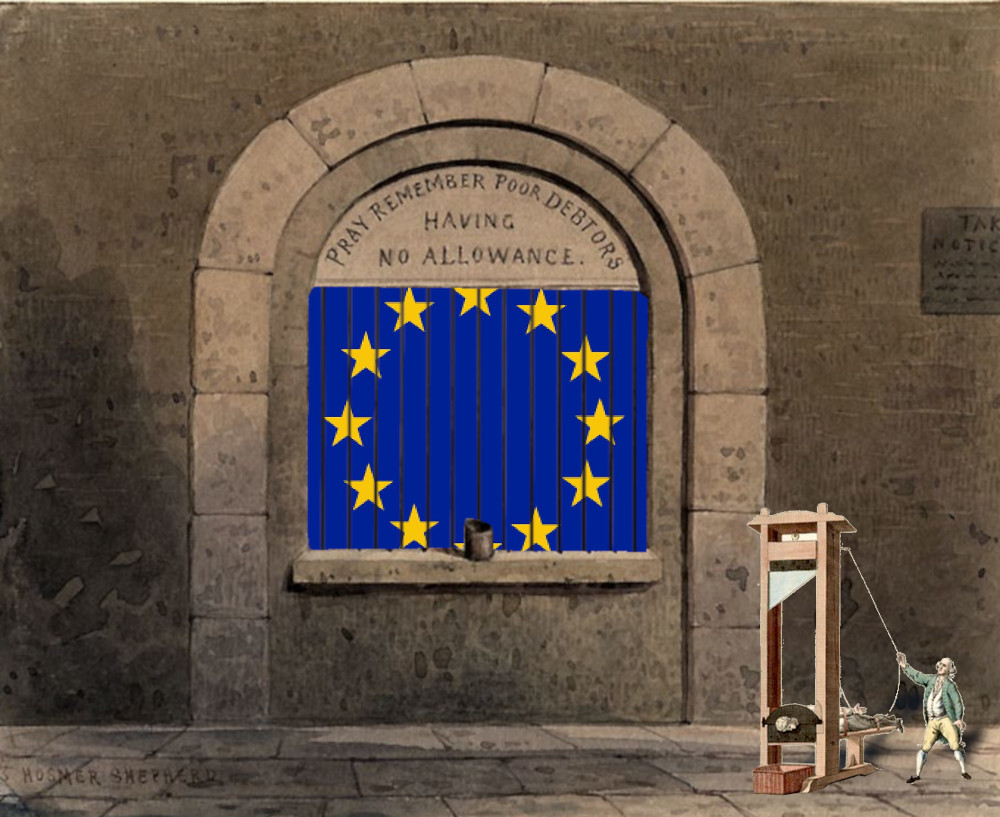
For people and businesses, money is scarce; for currency-issuing governments, it's not. The story that governments "spend our taxes" is obviously wrong: since governments are the SOURCE of money, it can't be right that governments have to get money from us before they spend.
1/
1/

Governments spend first, spending money into existence. Then they tax, which annihilates some of that money. If governments run "balanced budgets" (where they tax as much as they spend), they leave no money left over for us to use.
2/
2/
And if they run a surplus (taxing more than they spend), then they reduce the supply of money that's available for the private sector to spend. The government's deficit is the public's credit, and vice-versa.
3/
3/
Government spending is constrained...but not by money. It's constrained by RESOURCES. If the government creates money to buy more things than are for sale - or things that the private sector's also trying to buy - prices go up (AKA inflation).
4/
4/
There's a lot of important stuff for sale in any given government's currency that no one else is trying to buy, though: for example, the labor of unemployed people. Governments can safely create money to buy that labor at a socially inclusive wage with good benefits.
5/
5/
Sometimes, governments need to buy things the private sector also wants. During WWII, states needed raw material, processing facilities, and labor for the war.
To prevent inflation, they did two things: first, they rationed, limiting what the private sector could buy.
6/
To prevent inflation, they did two things: first, they rationed, limiting what the private sector could buy.
6/
Second, they created "war bonds," which were basically sinkholes for money. By urging workers to sequester the money they earned in war production, governments were able to take the money out of circulation during the period when there was nothing to buy with it.
7/
7/
Governments that recognize this undeniable truth - money is spent into existence, taxed out of existence - are able to weather crises, for example, by spending whatever it takes to get through a pandemic, or to recover from a crash.
8/
8/
Governments that allow themselves to be constrained by the fiction of "spending tax money" are hobbled during crises - locked into austerity at the moment when the economy contracts, drawing down the pool of spendable money when spending is desperately needed.
9/
9/
And even if a government is free from the ideological straitjacket of scarce money, it can still be hampered by external factors. For example, if a government owes debts in a currency it doesn't issue, then it can't spend its way out of debt.
10/
10/
Venezuela and Zimbabwe could create VEBs and ZWDs all day and it wouldn't give them the dollars they needed to service their debts - and since they'd oriented their economies towards import rather than self-reliance, there wasn't much they could buy in VEBs and ZWDs either.
11/
11/
It's not just debt: governments can cede their monetary sovereignty by pegging their currency to some other currency (like the USD), or by allowing a third party to issue their currency (like the eurozone nations).
12/
12/
The eurozone is a remarkable phenomenon: a union of 10 affluent countries that have abandoned control of their money and thus their ability to fund things like a job guarantee, putting themselves at the mercy of the European Central Bank during economic crises.
13/
13/
During the 2008 crisis, the ECB put the screws to the eurozone, punishing austerity and a wildly uneven recovery with riches for the financial sector (who were able to charge interest on loans that replaced state spending) and destruction for the real economy and the 99%.
14/
14/
It's grimly ironic. The ECB - which is largely controlled by German politicians - is repeating the mistakes of the German central bank in the runup to WWII. You've probably heard the stories of Weimar hyperinflation, but that's not what triggered the German depression.
15/
15/
Rather, it was Brüning's 1930 policy of DEFLATION - removing money from the economy through austerity - that triggered and then worsened the economic crisis in Germany, creating the conditions for societal collapse, fascism, and imperialist aggression.
16/
16/
Well, there's another economic crisis in the offing - the pandemic - and yet another, far worse one on the horizon - the climate emergency. And even with the constraints the ECB and eurozone nations have imposed on themselves, there is still room to get it right this time.
17/
17/
An all-star coalition of European academics and economists from every eurozone nation have signed onto a letter to the ECB, calling on it to forgive the debt the eurozone nations owe to it.
defenddemocracy.press/cancel-the-pub…
18/
defenddemocracy.press/cancel-the-pub…
18/
Like many central banks, the ECB chooses to issue debt whenever it creates new money (it doesn't have to do this, but it does). Much of that debt is bought up by investors seeking safe returns (for the same reason US pension plans buy T-bills and UK ones buy gilts).
19/
19/
But about 25% of that debt is held by the ECB itself - it's an accounting entry, in other words, not an actual debt. The ECB created 2.5 trillion euros, then decided that it owed 2.5 trillion euros to itself, for accounting purposes.
20/
20/
The ECB could simply wipe those debts off its books - or, if it wants to preserve the accounting convention, it could convert it into a perpetual debt at 0% interest.
21/
21/
Doing so would create the fiscal space for the entire EU-wide covid stimulus, with money left over to start on a Green European Deal.
The German interwar experience tells us what happens when we pursue austerity rather than writing off debt.
22/
The German interwar experience tells us what happens when we pursue austerity rather than writing off debt.
22/
But it also tells us what happens when we get it right: in 1953, the London Conference wiped out two-thirds of Germany's public debt, paving the way for Germany reconstruction and rise.
23/
23/
Now, German politicians have the power to repeat the mistakes of 1930, or the good policies of 1953. And this time, the stakes aren't merely a world war - they're the world itself.
eof/
eof/
• • •
Missing some Tweet in this thread? You can try to
force a refresh









